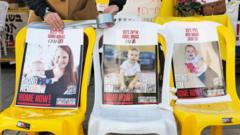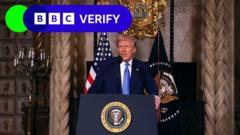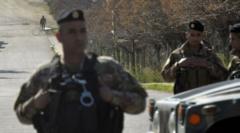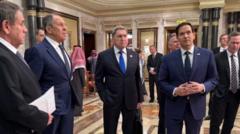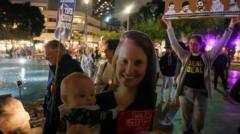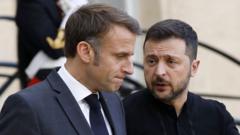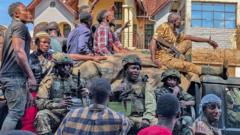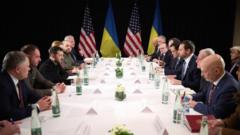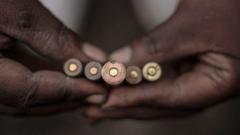With heavy fighting reported on the outskirts of Bukavu, DR Congo faces a critical juncture as M23 rebels, allegedly backed by Rwanda, make significant territorial gains, prompting calls for international intervention and peace talks.
M23 Rebels Advance Towards Bukavu Amid International Warnings
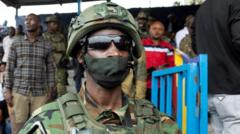
M23 Rebels Advance Towards Bukavu Amid International Warnings
The M23 rebel group continues its rapid seizure of territory in eastern DR Congo, closing in on Bukavu as international calls for a ceasefire intensify.
M23 rebels are making significant advances towards Bukavu, a major city in the eastern Democratic Republic of Congo. Their continuing campaign follows the recent capture of Goma, the region’s largest city, and occurs against a backdrop of increasing international concern over escalating violence and chaos. Despite pleas for a ceasefire and renewed dialogue, the M23 militants have pushed ahead with their efforts, forcing hundreds of thousands of residents to flee their homes.
The Tutsi-led M23 has been accused by Congolese government officials of receiving support from Rwanda, a claim that Rwanda vehemently denies. The conflict has deep historical roots, with the M23 previously seizing Goma in 2012. The possible takeover of Bukavu, the capital of South Kivu province and a vital hub for the area’s mineral trade, reflects an alarming trend of instability in the region.
Reports indicate that fighters from the M23 have already reached the airport located 30 kilometers north of Bukavu, causing the Congolese army and its allied militia to retreat. Concurrently, clashes have erupted on the city’s outskirts, heightening the sense of urgency among local authorities. Residents have been advised to remain indoors to stay safe during this tumultuous time.
In light of the advancing rebellion, Congolese President Félix Tshisekedi condemned Rwanda's supposed "expansionist ambitions" during the Munich Security Conference, urging for sanctions against Rwanda. His assertion reflects broader concerns over the exploitation of DR Congo’s rich natural resources amidst turmoil.
On the other side, Rwandan President Paul Kagame reiterated his emphasis on national security, citing threats posed by Hutu rebels operating from within DR Congo. Kagame has dismissed the notion of sanctions affecting his nation, focusing instead on the security challenges faced by Rwanda.
The ongoing situation is expected to be a topic of discussion as heads of African states gather at an African Union summit in Ethiopia. Moussa Faki Mahamat, head of the AU commission, stressed the importance of observing a ceasefire, advocating for resolution through diplomatic means rather than military operations. The international community's response in the coming days could significantly influence the trajectory of the conflict in eastern DR Congo.



